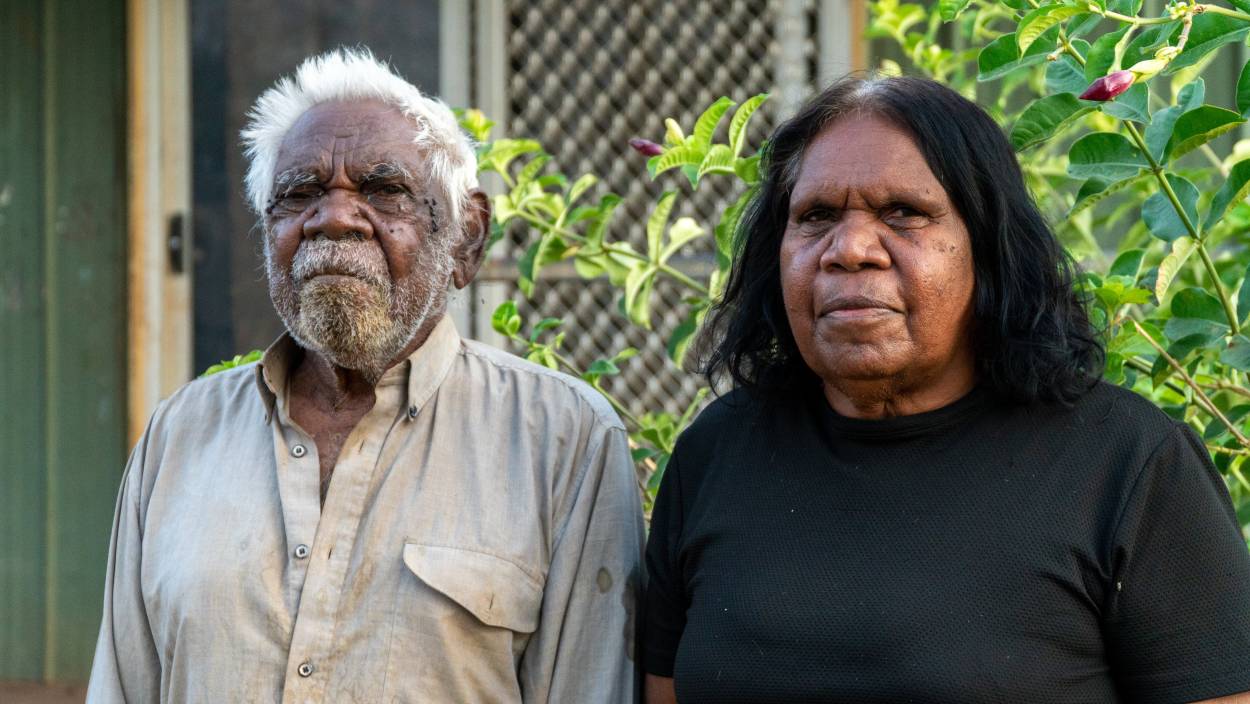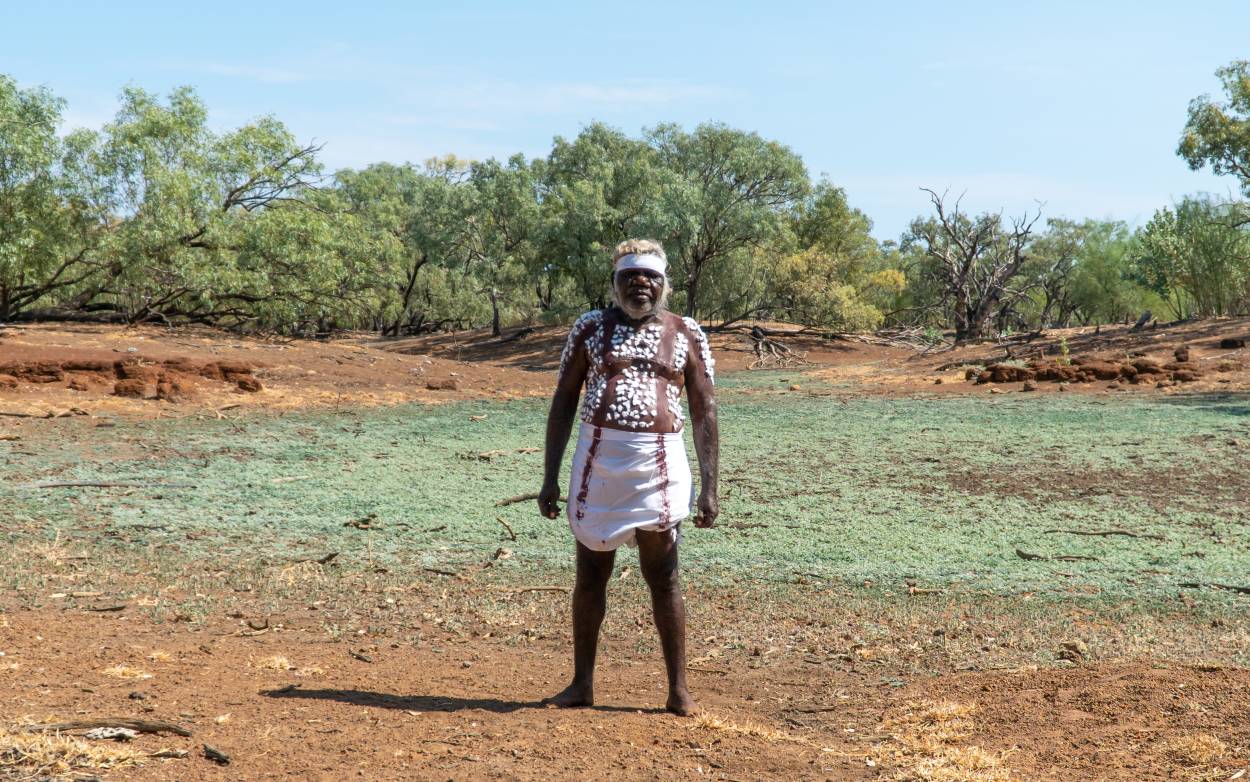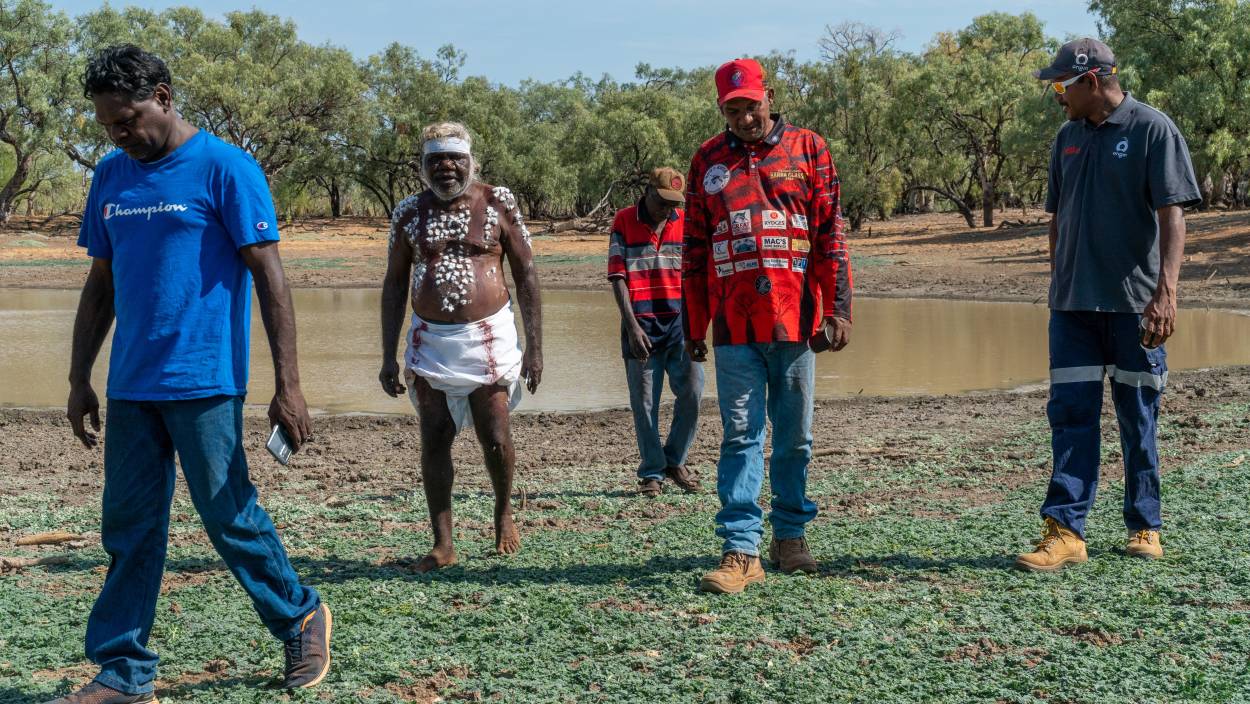Traditional Owners in the Top End are fed up with antifracking activists interfering on their country
Date: Aug 5, 2022
Publication Type: Blog
When Jingili Elder Pompey Raymond reflects on the Northern Territory's oil and gas industry, he sees careers for young people, education, community infrastructure and a pathway to protect his country.
A senior ceremony man and mangaya (Traditional Owner) born on Beetaloo Station, Mr Raymond believes the debate around industry is often hijacked by those who should not be speaking for the region.
"My father been learning me all that country....and all that Beetaloo Station, all them ceremony things, Mr Raymond said.
"Me and my daughter and my son, we can talk for that Beetaloo.
"Beetaloo Station, we got all them areas... (so) we can talk for that story, (those) people and all that country."
Fracking is a polarising issue among the wider Indigenous population of the Top End, but on Warranangku country Mr Raymond said the voices who could rightfully speak for country were clear in their support.
In a rare series of interviews, remote community leaders such as Mr Raymond have spoken up to dispel perceptions that the Top End's Indigenous community was united against development.
Pompey Raymond with his daughter Rosemary Raymond in Elliott.
Debate is centered on the Beetaloo Basin, which has enough shale gas stored to power Australia for an estimated 300 years, an attractive proposition given the east coast's current power woes.
Australian Petroleum Production and Exploration Association director Cassandra Schmidt in May boasted industrialising the basin could generate $1bn in revenue for the Territory over the next two decades, create thousands of jobs and completely transform towns like Katherine, Elliott and Tennant Creek.
Those rallying against companies such as Santos and Origin Energy have mounted a high profile media blitz off the back of a Tiwi Islander taking the federal offshore oil and gas regulator to court and anti-fracking group Nurrdalinji Native Title Aboriginal Corporation's outspoken criticism of the practice.
Their arguments are largely environmental and cultural - focusing on carbon emissions, groundwater health, wastewater disposal and risks to sacred sites.
But Mudburra-Jingili man Jeremy Jackson, who lives in Marlinja on the southwest corner of the Falcon-Origin Beetaloo Basin joint venture, said working with industry was the best way to protect country and improve lives under current native title laws.
Mr Jackson is a spokesperson for his uncle, Terry Jackson, a senior mangaya for the Bamarrnganja group (a major Aboriginal landholding group in the Beetaloo region).
"Native title you say no, the government will actually go around, to the back door, and you say no, and you get all this mining mob coming in," he said.
"We say yes and then we get the benefit out of it and also we look after our country too as well, our sacred sites.
"We want to work together with Northern Land Council and this mining company to protect our country, and our sacred sites."
Mr Jackson said he was happy with the level of consultation undertaken by Origin and the Northern Land Council on the project.
He said Origin had taken its community license to operate seriously - funding a football oval in Elliott, providing jobs for remote residents, and ensuring Traditional Owners had a first-hand look into the operations.
Terry Jackson in his falcon design at Bamarrnganja water hole on Hayfield Station.
Mr Jackson's comments were backed by fellow Mudburra-Jingili man Benjamin Ulamari, who said Origin was giving jobs to anyone willing to work in Elliott and Marlinja communities.
"My position is a career position - I can get trained up and then I can move to elsewhere and just get a job like that," Mr Ulamari said.
"Helping give us a better future for us, for our kids.
"We want better opportunity, better education, better jobs for our people, (and) we’ll decide that, not others."
Origin has laid out plans to drill two more wells this year between Daly Waters and Borroloola, about 150km northeast of Elliott.
Several smaller players operating in the region - including Empire Energy and Tamboran Resources - are racing towards production too, the former telling a conference last month it hoped to be generating cashflow in 2024.
The jobs are important - living 250km north of Tennant Creek and about 750km from Darwin, career prospects to date have been thin for residents of Elliott and Marlinja.
But even more important than jobs is protection of sacred sites and country, something those supporting fracking have consistently been accused of failing on.
It is an unfair assertion, Mr Jackson said.
Traditional Owners Brendan Edwards, Terry Jackson, Darryl Jones, Jeremy Jackson and Ben Ulamari.
"Origin are drilling and all that stuff, and we see what they’re doing on our country, Uncle Terry’s country," he said.
"We did ask a lot of questions about the water and then they showed us.
"We asked them what they put underneath the fracking stuff and they showed us a sample and it was really good."
That willingness from Origin to show Traditional Owners what they are doing has built trust in the company, and a strong belief fracking can be done safely.
Traditional Owners also have access to non-company advice via the Northern Land Council’s technical experts.
For its part, the Territory government has promised to hold industry to high standards, describing risks posed by fracking as "negligible".
Speaking after approving four new Origin wells in the basin in June, and as activists cried foul over Tamboran Resources' move onto a cattle station without pastoralist consent, NT Environment Minister Lauren Moss said stringent environmental standards would be adhered to.
“Proponents are required to have stringent Environmental Management Plans approved, and the Department of Environment, Parks and Water Security, as environmental regulator, ensures compliance with EMPs,” she told the National Indigenous Times.
“Regarding Tamboran, there is a land access agreement in place as determined by NT Civil and Administrative Tribunal, which meets the minimum provisions."
Ms Moss said she was comfortable with the level of Traditional Owner consultation undertaken by companies seeking to unlock the Beetaloo Basin's industrial potential.
*By Tom Zaunmayr, National Indigenous Times. This article has been reprinted with permission.




